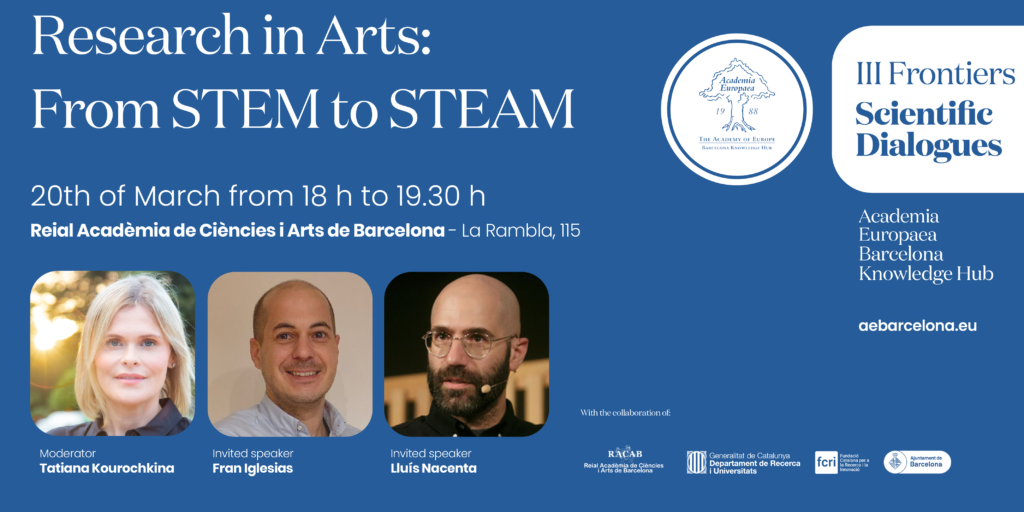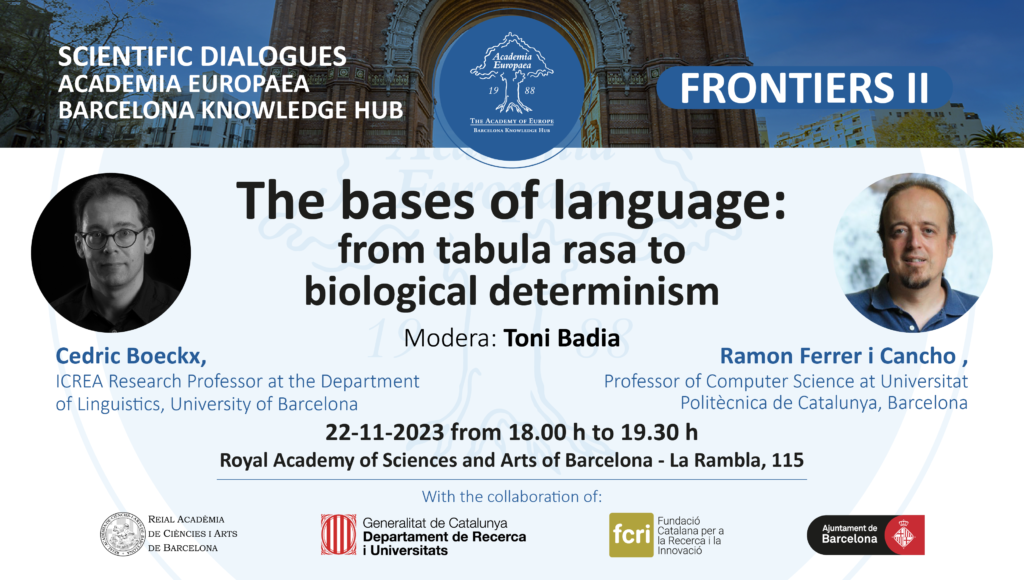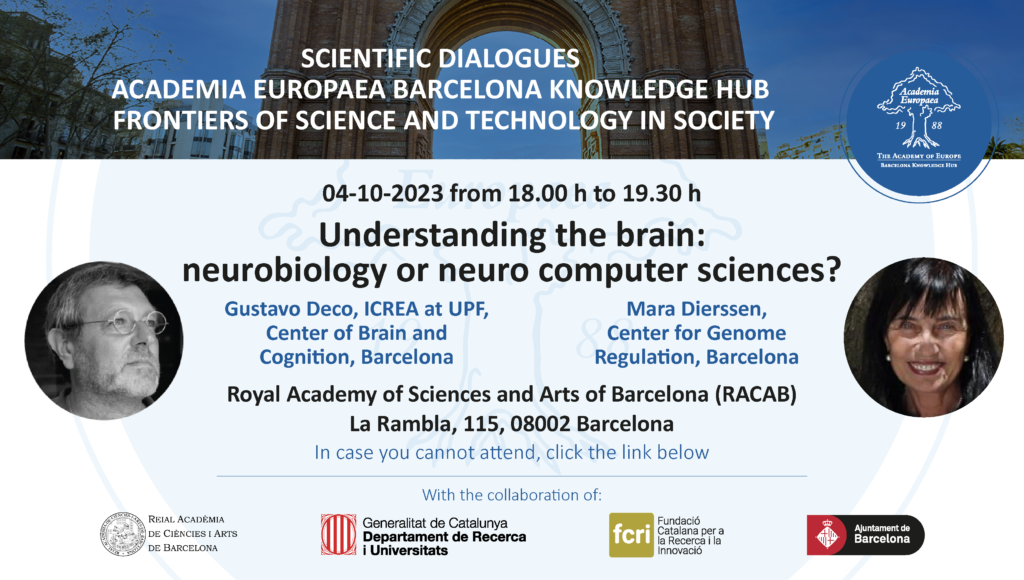Frontiers of Science and Technology in Society
Change of date! 25th of June instead of 26th! same place, same hour!
25-09-2024 from 18 to 19.30 pm
Ecological collapse: the crisis due to the human footprint on environment
In recent decades, the rate at which human activities impact the environment has increased dramatically. As a result, climate change threatens many plant and animal species with displacement or extinction, alters and destroys ecosystems, triggers more extreme weather events, reduces agricultural productivity, and makes large areas of the globe uninhabitable. Unless humans drastically change their behaviour soon, environmental degradation will reach a point of no return, with catastrophic consequences. While individual nations may overhaul environmental practices, raise taxes on emissions, and develop eco-friendly technologies within their borders, their efforts will not be enough without the participation of the international community. Furthermore, since climate change mitigation takes time to yield results, it is difficult for some countries to willingly sacrifice short-term economic growth and prioritize long-term green policies.
To watch the session online click here
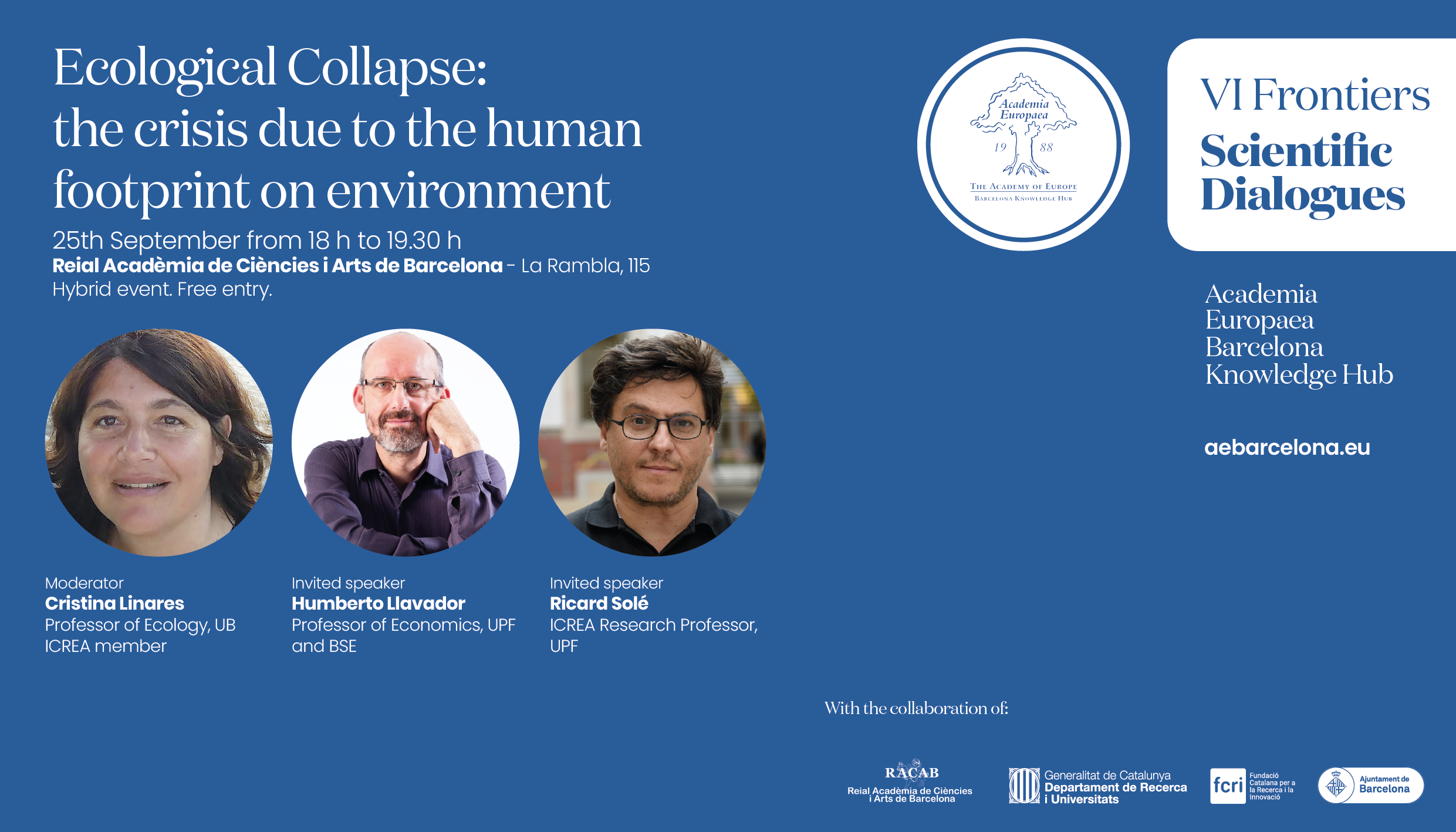
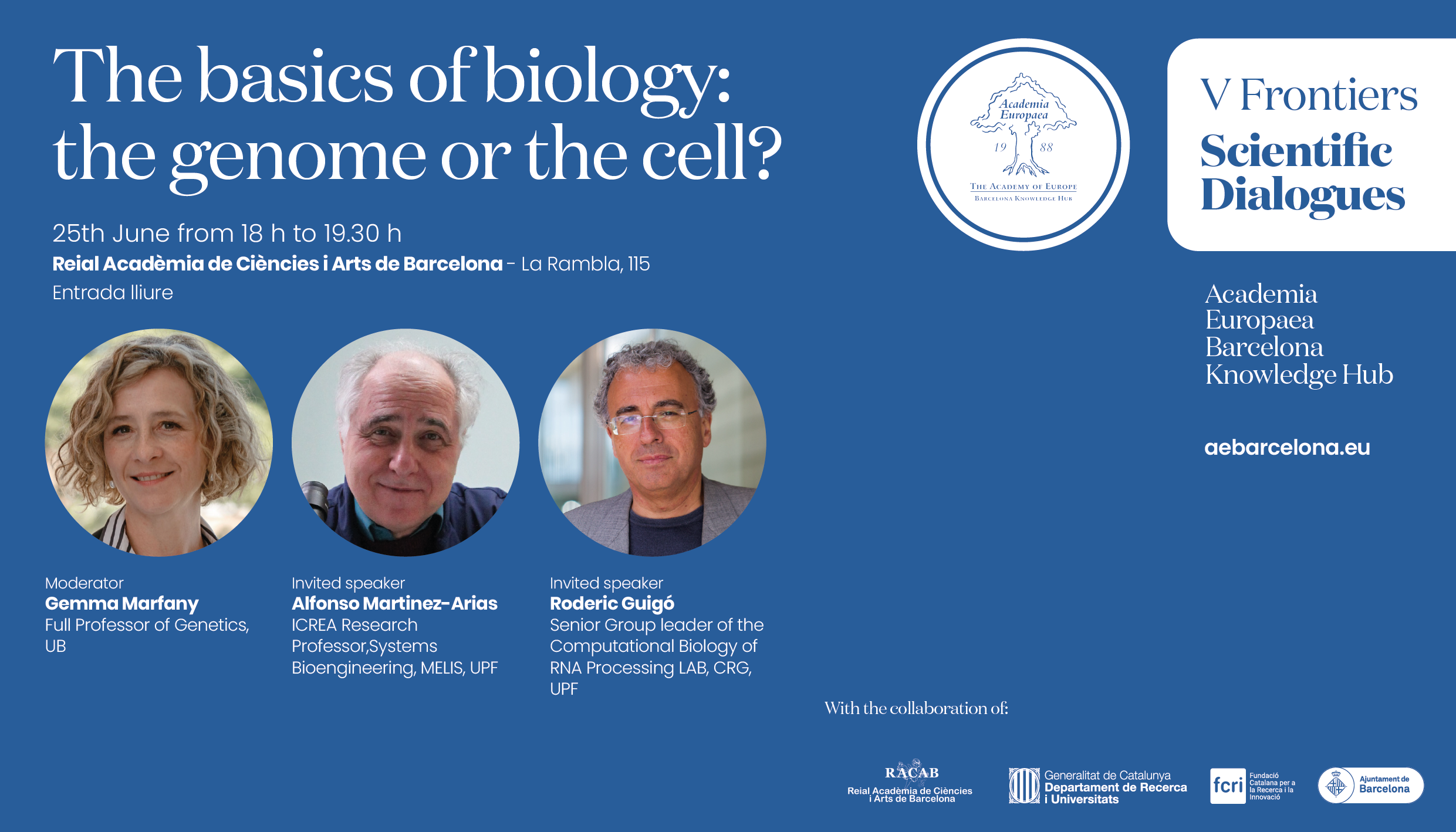
The basics of biology: the genome or the cell?
Genome-centered biology emphasizes the role of genetic information encoded within DNA as the primary determinant of an organism’s traits and functions. Meanwhile, cell-centered biology underscores the importance of the cell as the basic unit of life, focusing on its complex structures, functions, and interactions within the environment. Yet, contemporary understanding acknowledges the inseparable relationship between genes and cells, recognizing that genetic instructions from the genome are executed within the dynamic environment of the cell. Is the integration of both perspectives possible? Could we consider the interplay between genetic information and cellular dynamics in shaping life’s intricacies? Is there a solid departure point or is it just a lack of knowledge?
Invited speakers:
Alfonso Martinez-Arias, ICREA Senior research professor, Barcelona
Roderic Guigó, coordinator of the Bioinformatics Programme at the CRG, Barcelona and professor at the UPF, Barcelona
Moderator: Gemma Marfany, UB, Barcelona
To watch the session click here
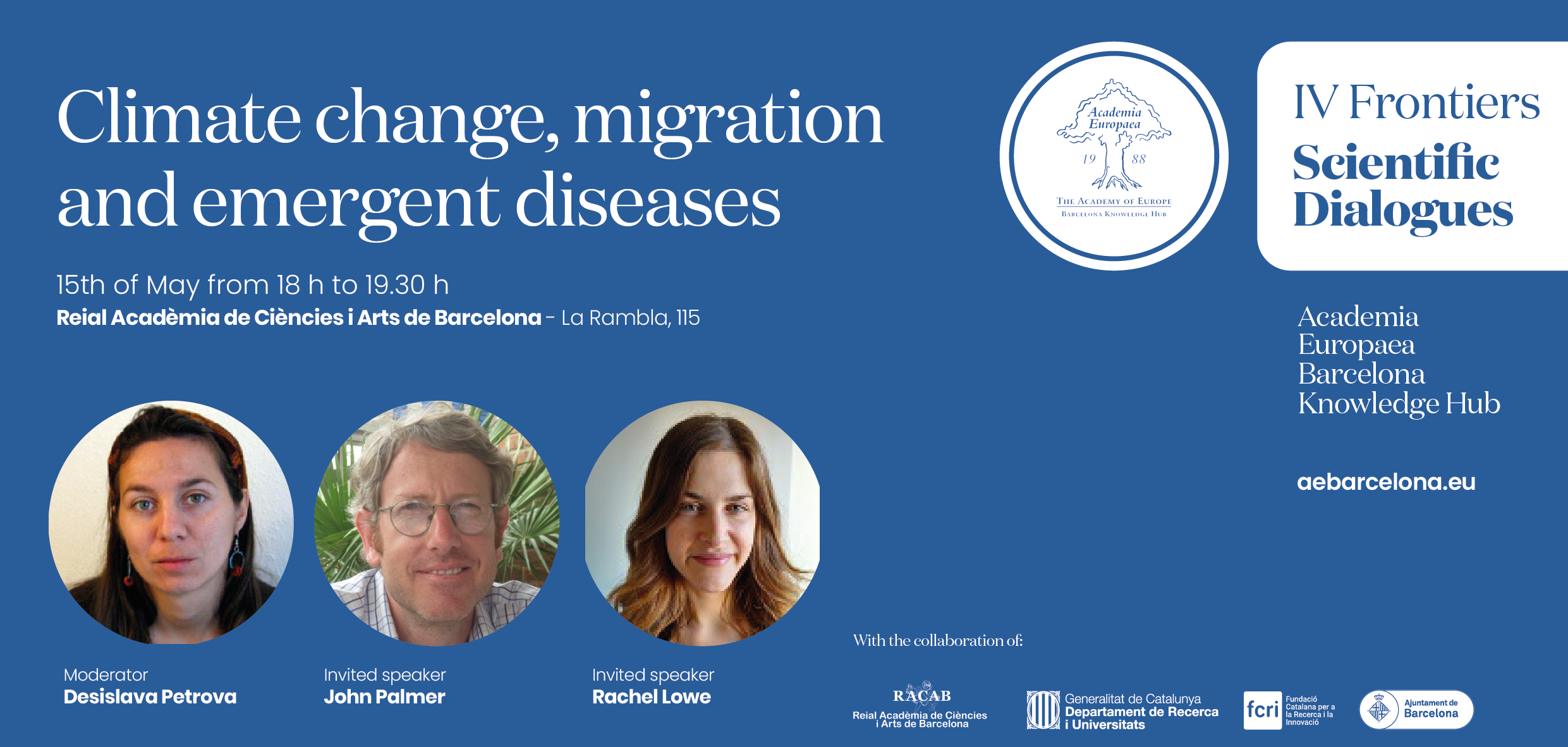
15th of May from 18.00 to 19.30 p.m
Climate change, migration and emergent diseases
Climate change poses a multifaceted challenge, intertwining with migration patterns and the emergence of diseases. Altered environmental conditions due to climate shifts impact disease dynamics, expanding the range of vectors and fostering the spread of infections. Concurrently, climate-induced events like extreme weather drive human displacement and migration, amplifying the risk of disease transmission in crowded settlements. These intertwined factors create a complex nexus where environmental changes, human mobility, and disease emergence are interconnected. Addressing this requires comprehensive strategies that combine environmental conservation, public health initiatives, and global cooperation to manage migration and mitigate the health risks exacerbated by climate change.
The AE-BKH introduces a new series of high-level scientific discussions in English that explore the limits of knowledge and cross disciplinary boundaries. Entitled Frontiers of Science and Technology in Society (abbreviated as Frontiers), the series focuses on cross-sectional perspectives of very distant fields of knowledge, for example, the social, ethical and/or philosophical implications of scientific or technological advances.
Frontiers seeks to address cutting-edge, socially relevant science topics from very different viewpoints, with the goal of stimulating an enriching discussion on possible paths forward. Each session features two scholars, a scientist or technologist and, providing contrast, an expert from the social sciences or humanities, who are brought together by a convenor or moderator. Sessions are streamed live, engaging the international community, particularly AE Members, while also enhancing the visibility of the excellent local scientific ecosystem of Catalonia.
Contact Us
Academia Europaea-BKH
Fundació Catalana per a la Recerca i la Innovació
Passeig Lluís Companys, 23, 5th floor, 08010 Barcelona, Catalonia, Spain
+34 936 896 477
+34 620 777 280
AEbarcelona@fundaciorecerca.cat

